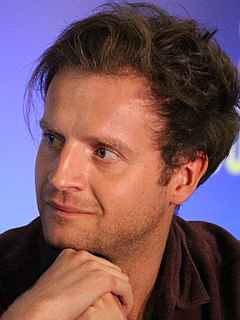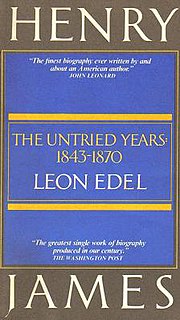A Quote by Reza Aslan
My biography of Jesus is probably the first popular biography that does not use the New Testament as its primary source material.
Related Quotes
I had a checklist in my mind of the things that make a biography practical. Is the source material centralized? Is it easy to find? Are there new primary sources that no one has ever had access to? Are all the sources in English? If they're not, are they in a language that you speak? And I realized that not only is Armstrong the most important figure of Jazz in the 20th Century, but he's a perfect subject for a biography for all of these reasons. I had always loved his music and I had been fascinated in him as a personality. And that's really the key to writing a biography.
Biography always has fulfiled this role. Robinson Crusoe is a biography, as is Tom Jones. You can go through the whole range of the novel, and you will find it is biography. The only difference between one example and the other is that sometimes it's a partial biography and sometimes it's a total biography. Clarissa, for example, is a partial biography of Clarissa and a partial biography of Lovelace. In other words, it doesn't follow Lovelace from when he is in the cradle, though it takes him to the grave.
Digging up new information and speculating on it isn't your primary purpose when you're writing a biography intended for young readers, unless you ?nd compelling evidence that departs from the accepted wisdom. A biography for young people calls for the demanding art of distillation, the art of storytelling, and your responsibility is to stick as closely as possible to the documented record.
Life, individual or collective, personal or historic, is the one entity in the universe whose substance is compact of danger, of adventure. It is, in the strict sense of the word, drama. The primary, radical meaning of life appears when it is employed in the sense not of biology, but of biography. For the very strong reason that the whole of biology is quite definitely only a chapter in certain biographies, it is what biologists do in the portion of their lives open to biography.
When you are playing somebody who did exist, and there is good source material on them, whether it is a biography or archives or experts, you would be stupid not to delve into them. But there is a point in the process where you leave the books alone, and instead, you focus on the script and creating your version.





































